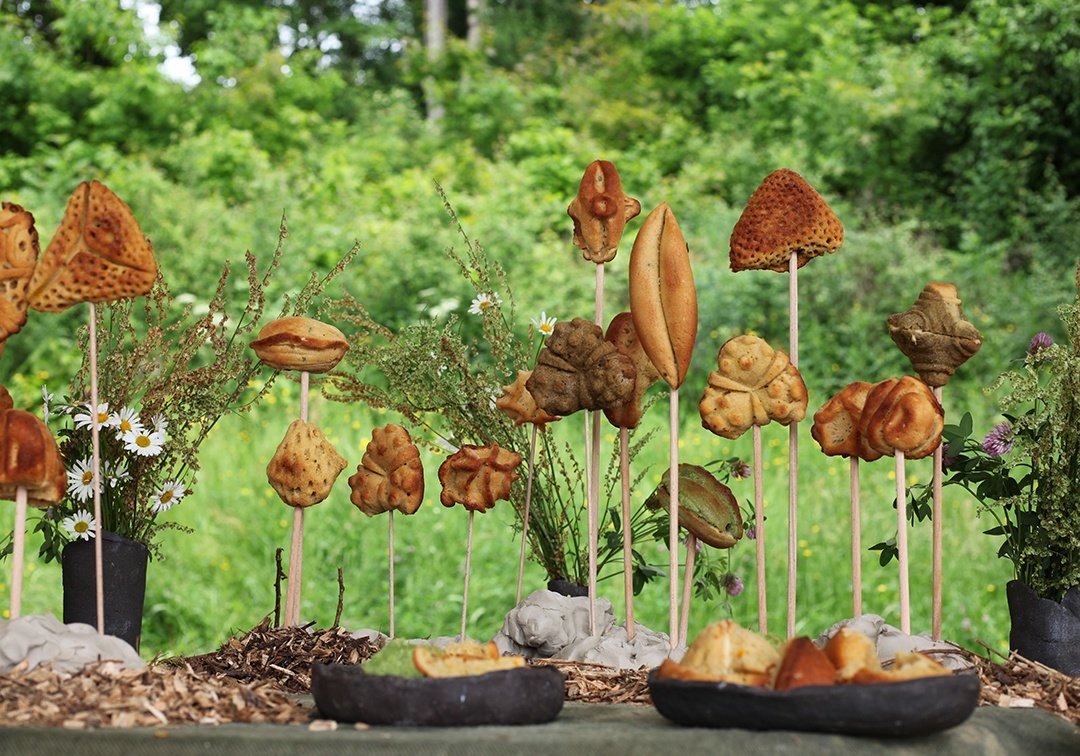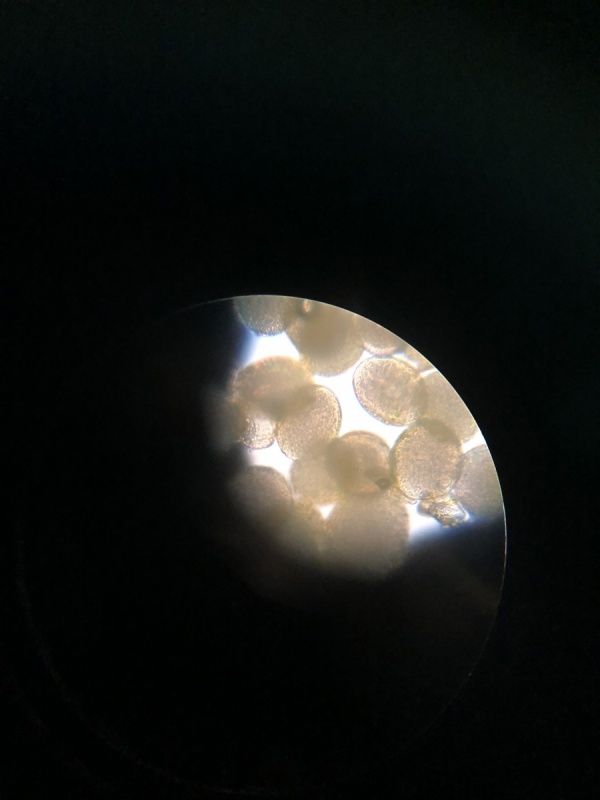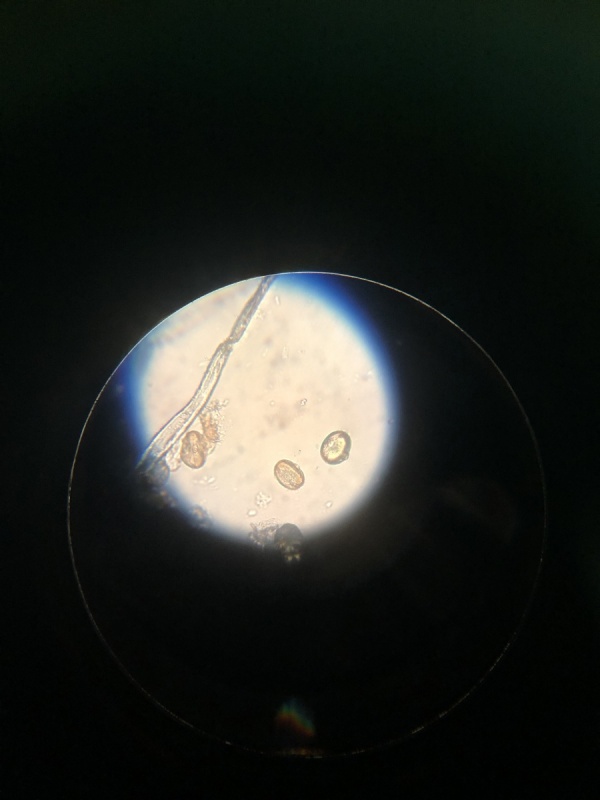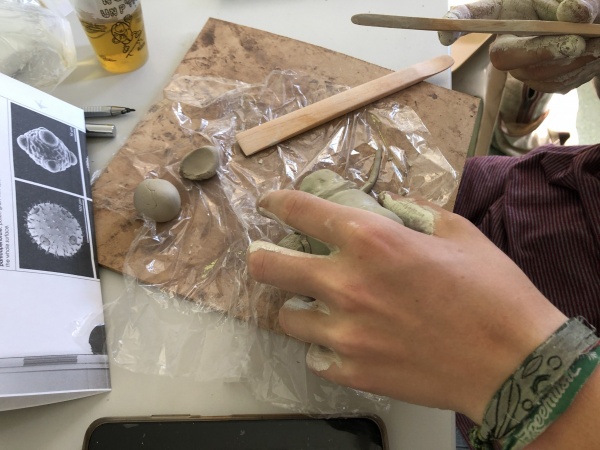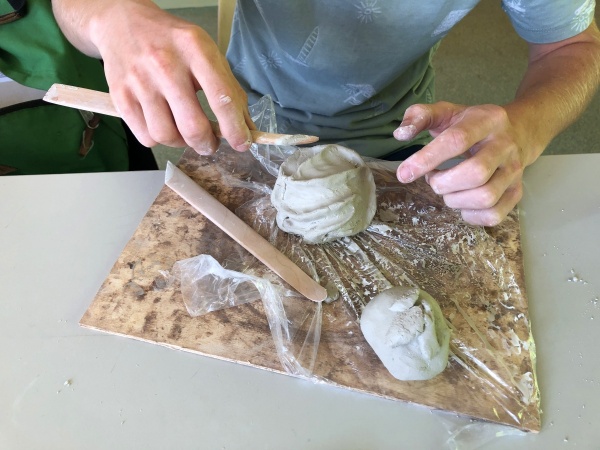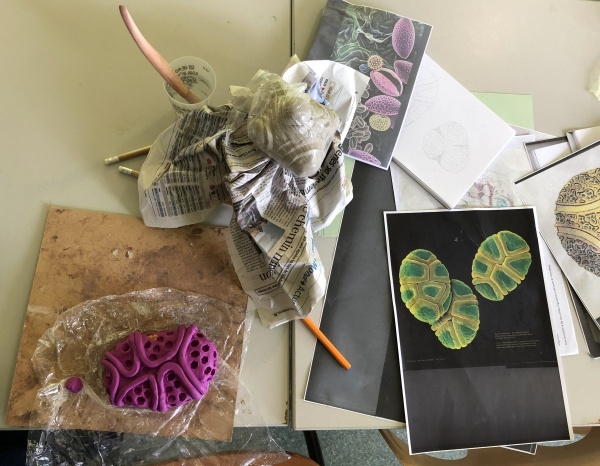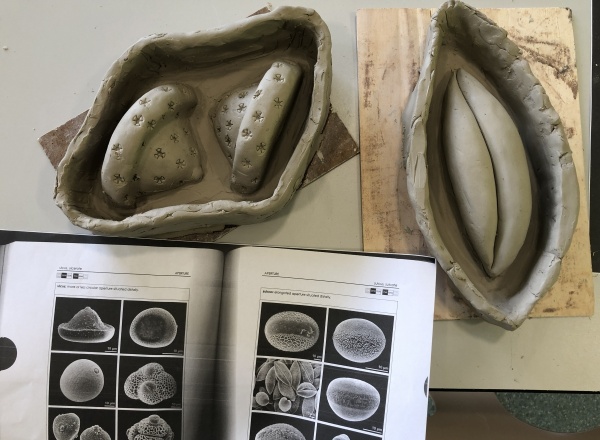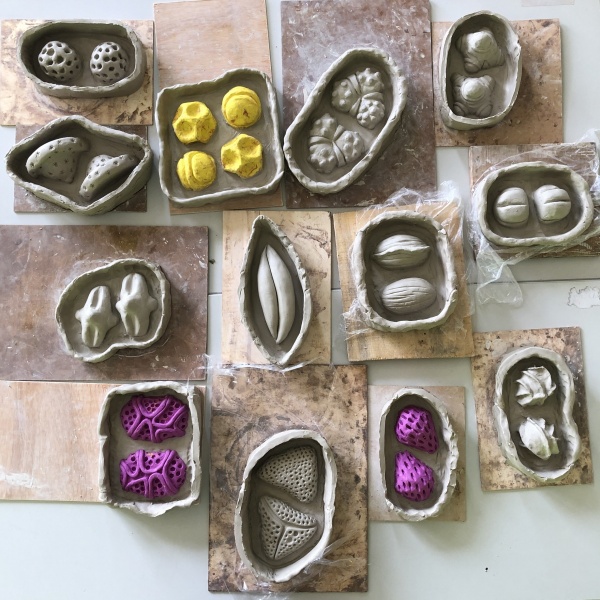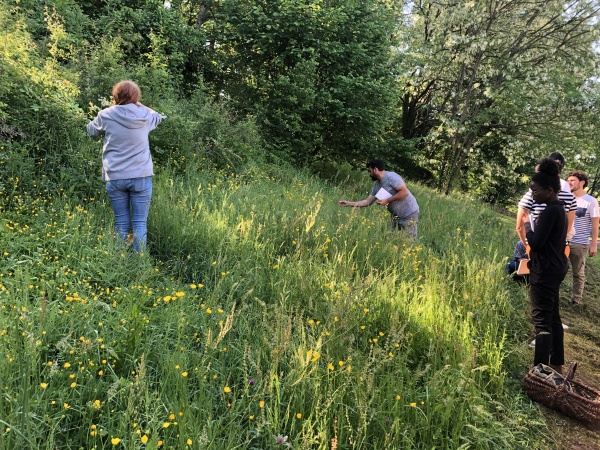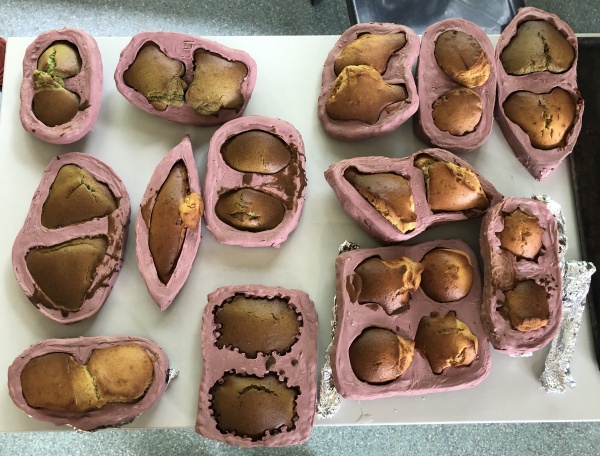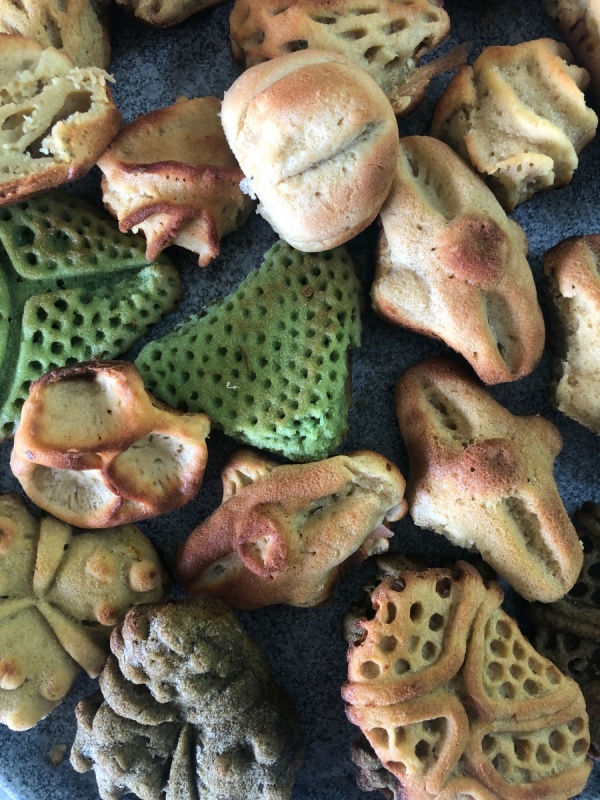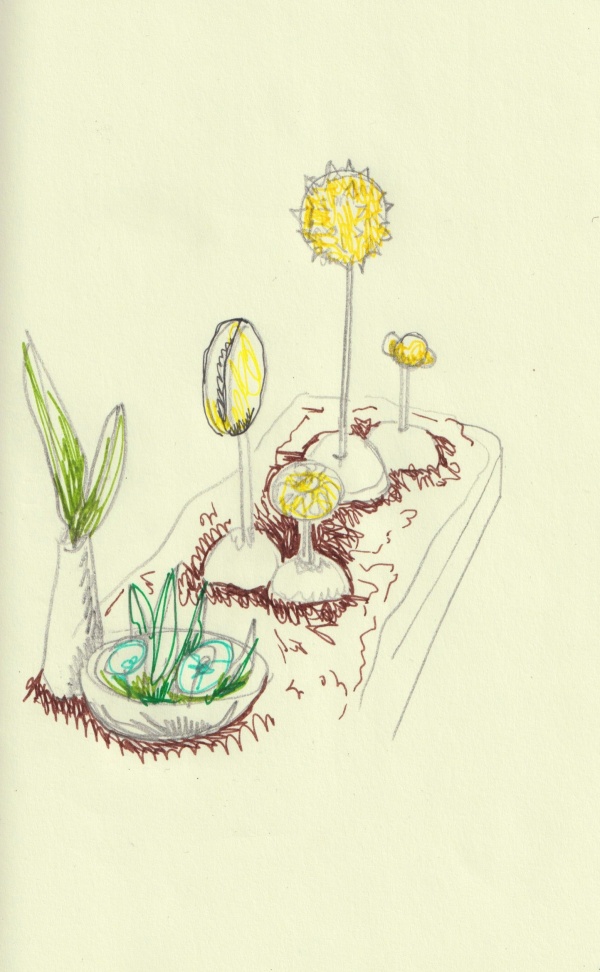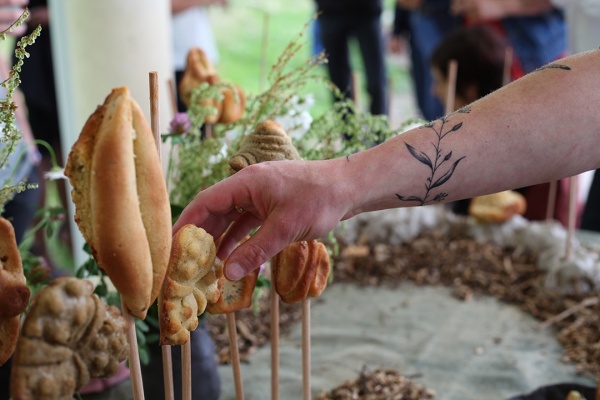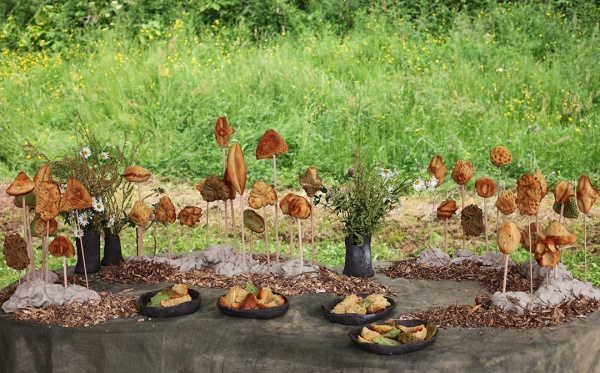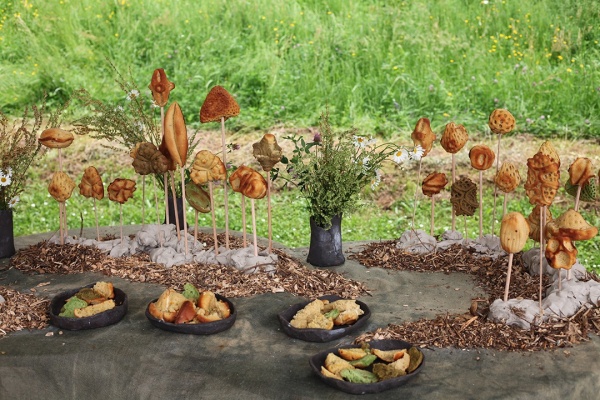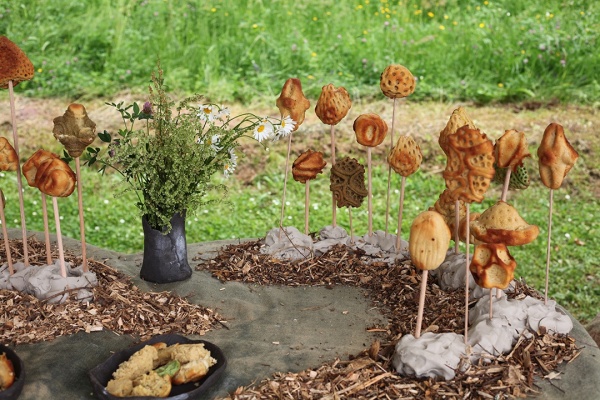pollens banquet, since 2022
workshop and culinary tasting
"Emanuele Coccia sees food as an interspecific political fact in which bodies constantly migrate towards others, highlighting the fact that no species can limit itself to its own body." Thiphaine Calmette, le goût d'apprendre, Libération.
Pollen is the most ingenious of structures, an element of precise and complex architecture whose evolution has produced treasures of sophistication. Trees and plants cheat their immobility with these tiny travelling grains, holding their genes in the making. Whether they are carried by the wind, insects or other animals, they are the fruit of very fine and specific coevolutions.
Humans have shared the same air with these pollens for as long as they have been on earth, but the anthropic force we exert on our common environment has shattered the fine balance. With the sudden disappearance of a large number of pollinators, the travels and natural migrations of these pollens are endangered, while at the same time anemophilous pollens (carried by the wind) are becoming powerful allergens for humans as a result of pollution.
For Baptiste Morizot, "Our systemic ecological crisis is also a crisis of sensitivity to living things. By this I mean the impoverishment of words, of our ability to perceive, of the emotions and relationships we can weave with the living world (....) (The joy that) is really lacking, and that interests me, is the joy at the idea of the existence of living things. And the joy of being part of it.
This affect has to be invented from almost nothing in our culture. Because modern people don't know they're alive, and when they do, they experience it as a downgrade rather than an honor. To be alive, to be of this world, to share with other living beings a community of destiny and mutual vulnerability, is not part of our cultural conception of ourselves."
To “be”, we first collect flowers to observe their pollens under the microscope. In situ, we gather wild edible plants to give our pollen-cakes their aroma and color.
By experimenting, picking and manipulating the materials, the aim is to create, for the last day of the workshop, culinary preparations in the shape of giant pollens, which each guest will be able to “pick” and taste.
A table becomes our territory, landscaped with topsoil and modeling clay, to receive the suspended pollens, the wild plants to be tasted.
An invitation to new poetic and concrete migrations.
